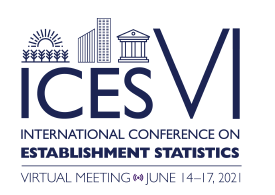All Times ET
Program is Subject to Change
TBD
Getting Beyond the Front Office is Half the Battle: Multiple Levels of Incentives in a Two-Stage School Establishment Survey (308187)
Kayla Varela, U.S. Census Bureau*Allison Zotti, U.S. Census Bureau
Keywords: Incentives, Gatekeeper, Two-stage Sample
Decreasing response rates and increasing data collection costs have forced survey organizations to consider new data collection strategies (Groves and Heeringa, 2006). For the 2017-18 data collection cycle, the National Teacher and Principal Survey (NTPS) explored the use of unconditional incentives in an effort to increase teacher response rates and overall sample balance. The incentives experiment was designed to test the effectiveness of incentivizing the school coordinators, who act as gatekeepers in making contact with teachers at their school, in addition to incentivizing the teachers. NTPS samples more than one teacher in a school, and the coordinator is a school staff member that is responsible for distributing the questionnaires to sampled teachers and encouraging them to respond.
This experiment occurred in two phases based on how early schools provided a list of teachers to sample from. In schools that provided a list early in the data collection operation, only a teacher incentive of $5, $10, or $0 was sent, where the teachers receiving $0 served as the control group. In schools that provided the teacher list late, both teachers and the school coordinator were eligible for an incentive of $5, $10, or $0. This experiment investigated the effects on teacher response rates when incentivizing the school-level coordinator, in conjunction with incentivizing the teachers directly. Cost-benefit analysis and R-indicators were also used to evaluate the effects of the various incentives on budget and data quality.
